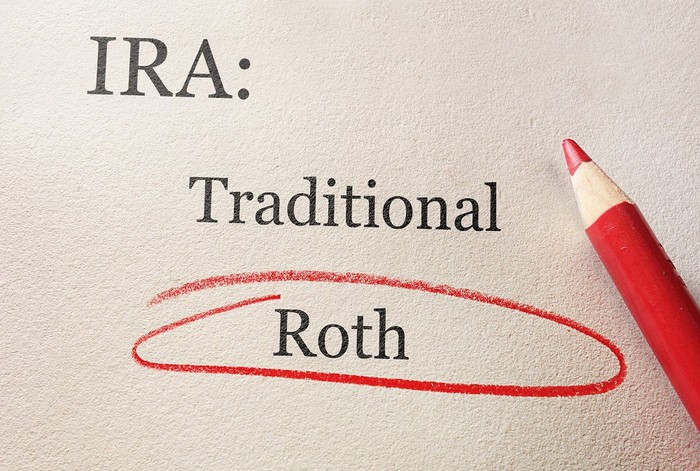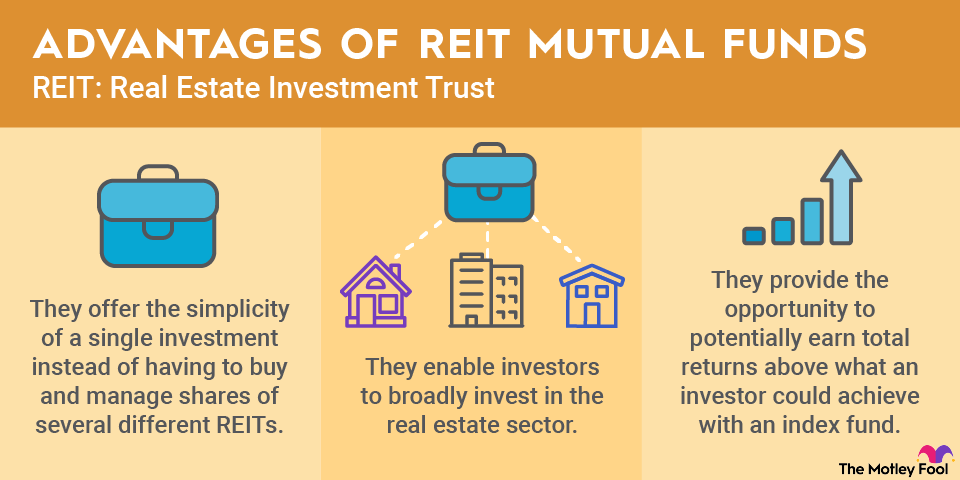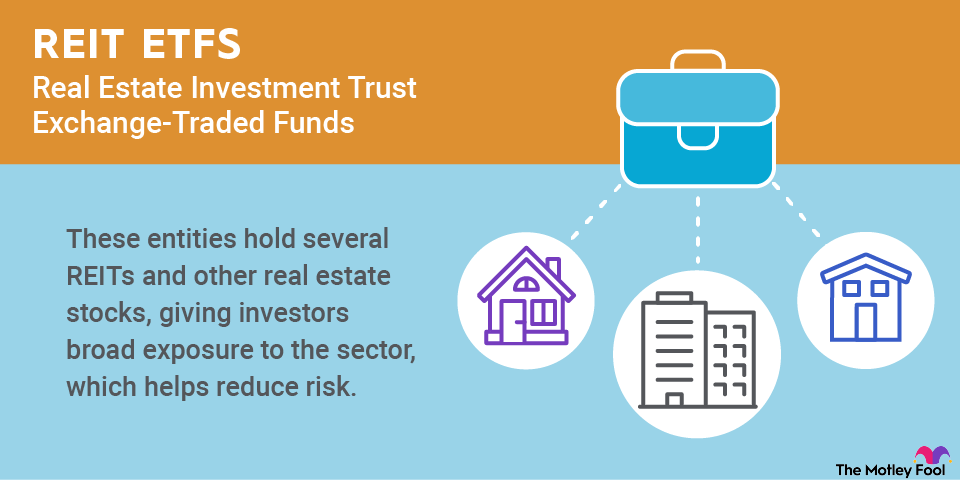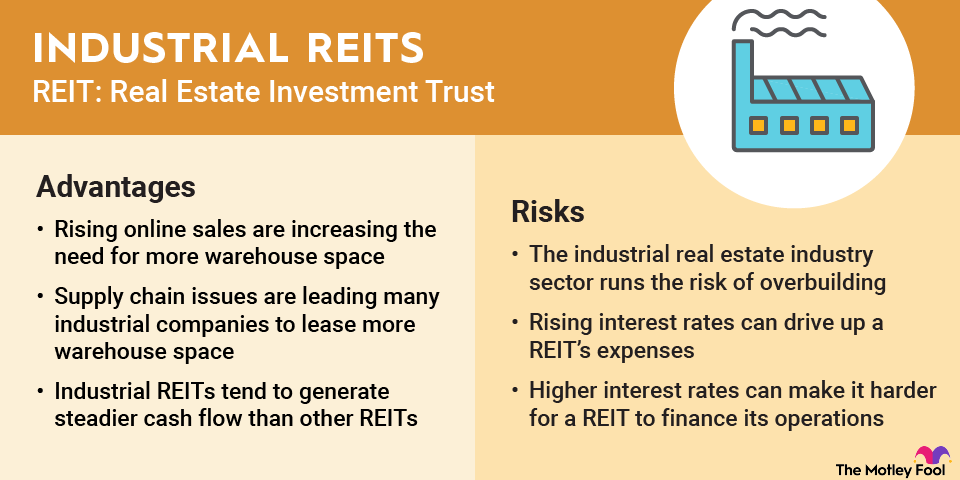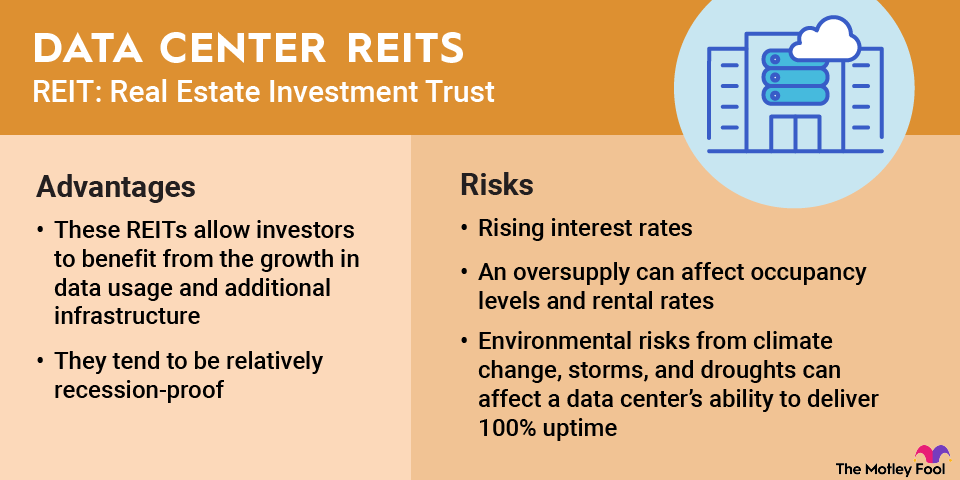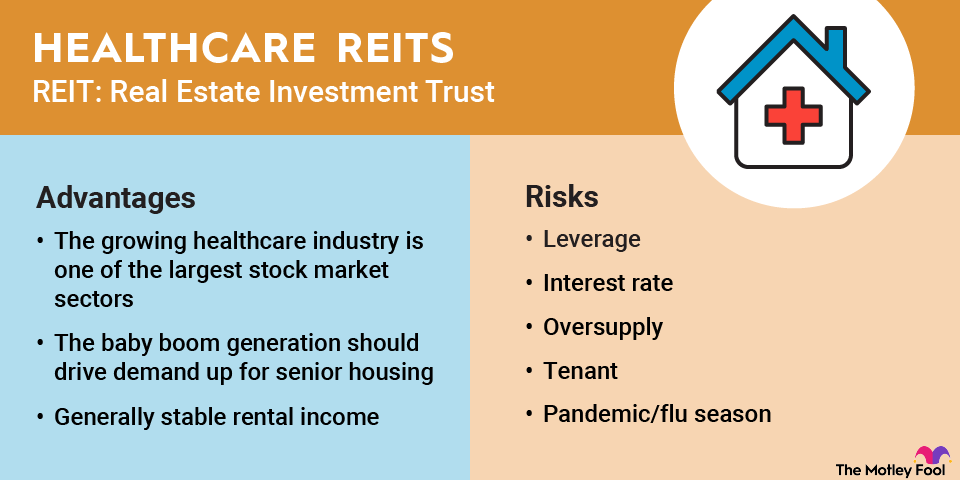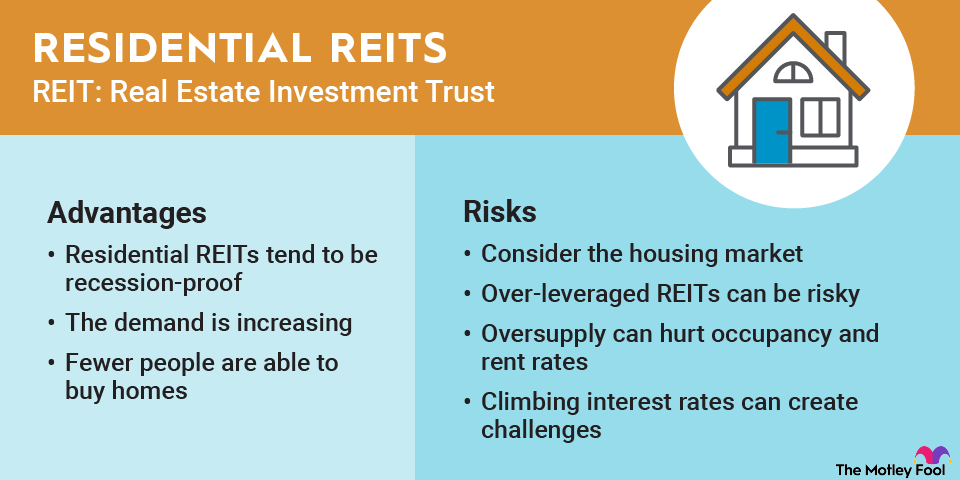Congress created real estate investment trusts (REITs) so that anyone could invest in real estate. The structure leveled the playing field that was once only available to those with a high net worth. Today, anyone with an online brokerage account and some spare cash can invest in REITs with just a few clicks.
Overall, REITs have been a good investment throughout the years. Here's a closer look at why investors should consider adding REITs to their portfolios.
Why REITs make a good investment
REITs offer investors several benefits that make them an ideal fit in any investment portfolio. These include competitive long-term performance, attractive income, liquidity, transparency, and diversification.
Competitive long-term performance
Historically, REITs have performed well compared to stocks, especially over long periods. For example, since tracking started in 1972, REITs -- as measured by the FTSE Nareit All Equity REITs Index -- have produced a compound annual average total return (stock price appreciation and dividend income) of 12.6%. That has outperformed the S&P 500's return of 8% per year during that period.
REITs have outperformed stocks over longer periods.
TIME PERIOD | S&P 500 (ANNUALIZED RETURN) | FTSE NAREIT ALL EQUITY REITS
(TOTAL ANNUAL RETURN) |
|---|---|---|
1972-2024 | 8.0% | 12.6% |
Past 40 years | 9.1% | 11.4% |
Past 30 years | 8.5% | 11.4% |
Past 25 years | 6.2% | 11.7% |
Past 20 years | 8.3% | 9.0% |
Past 10 years | 11.1% | 7.2% |
Past 5 years | 15.3% | 5.5% |
Past year (2024) | 23.2% | 4.9% |
Liquidity
Real estate is an illiquid investment, meaning an investor can't readily convert it to cash. For example, suppose an owner of a single-family rental property needed to sell to cover a big expense. They'd have to list the property, wait for an acceptable offer, and hope they don't run into any snags leading up to closing. It could take months before they're able to convert the property into cash, depending on market conditions. They'd also likely need to pay a real estate agent fee as well as other closing costs.
On the other hand, if a REIT investor needed money, they could log on to their online brokerage account and sell REIT shares anytime the market is open. A REIT investor also wouldn't pay any fees to sell since most brokers don't charge commissions.
Transparency
Many private real estate investments operate with little oversight, so real estate sponsors can make decisions that aren't always in the best interest of their investors.
However, REITs are highly transparent. Independent directors, analysts, auditors, and the financial media all monitor REITs' performance. They're also required to report their financial results to the U.S. Securities and Exchange Commission (SEC). This oversight gives REIT investors a level of protection so that management teams can't easily take advantage of them for their own gain.
Diversification
REITs enable investors to diversify their portfolios across the commercial real estate market, helping reduce their correlation to the stock and bond markets. That diversification helps lower an investor's risk profile without negatively impacting returns.
For example, adding REITs to a traditionally balanced portfolio of 60% stocks and 40% bonds has added to an investor's return over the long term. Reallocating 10% of a 60/40 portfolio to REITs (55% stocks/35% bonds/10% REITs) has improved returns from 6.4% to 6.9% over the past 25 years. Meanwhile, a 20% allocation to REITs (50% stocks/30% bonds/20% REITs) has boosted returns to 7.2% annually.
Adding REITs to a portfolio should enable it to produce better risk-adjusted returns, and they should help smooth out volatility.
Related investing topics
REITs are a good investment for any portfolio
REITs have historically produced solid returns. They also provide investors several other benefits, like dividend income and diversification, so they're a good addition to any investor's portfolio.



